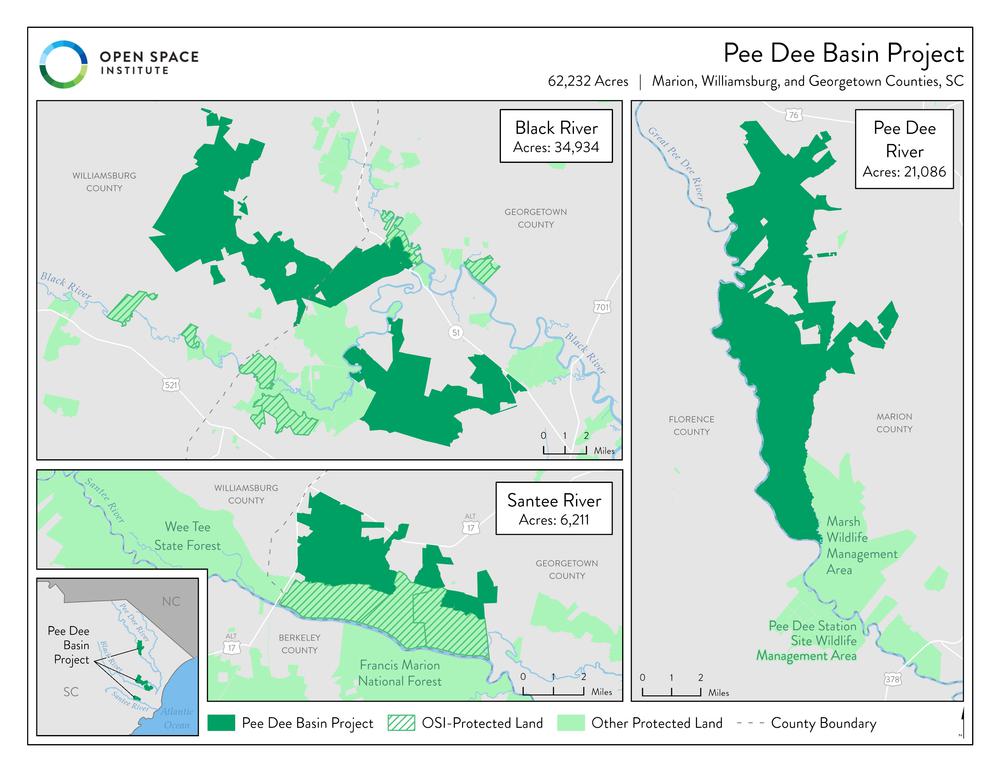 International Paper is closing two packaging plants (in California and Kentucky) amid weak demand. In related news: Ontario’s Kap Paper seeks to reinvent itself; BMI ends plans to re-open the long-shuttered Prince Alberta pulp mill; BC hopes to attract private sector investment; and a new federal softwood support package is in the works. Meanwhile: Canada’s inflation rates eases as housing starts fall; and mass timber is featured in Toronto and Delta, Alabama.
International Paper is closing two packaging plants (in California and Kentucky) amid weak demand. In related news: Ontario’s Kap Paper seeks to reinvent itself; BMI ends plans to re-open the long-shuttered Prince Alberta pulp mill; BC hopes to attract private sector investment; and a new federal softwood support package is in the works. Meanwhile: Canada’s inflation rates eases as housing starts fall; and mass timber is featured in Toronto and Delta, Alabama.
In Forestry news: Parks Canada is planting endangered whitebark pine in Alberta; a BC First Nation turns forest waste into biochar; an ENGO group kicks off a BC-wide protest; South Carolina conserves 62,000 acres of forest; and firefighters respond to wildfire in Mark Twain National Forest.
Finally, University of BC researchers launch a mushroom-powered, waterless toilet.
Kelly McCloskey, Tree Frog News Editor

 Government has launched Look West, a strategic plan to deliver major projects faster, expand skills training and grow key sectors to strengthen B.C.’s economy, creating good jobs and opportunities for people and businesses, and benefiting all of Canada. “British Columbia can get big things done – which is why our province is vastly overrepresented in the list of major projects Ottawa is fast-tracking,” said Premier David Eby. “This plan sets big goals as we make B.C. the economic powerhouse of Canada to create great jobs and drive prosperity in every corner of the province.” Look West rises to the challenges brought on by U.S. tariffs. The strategy sets a 10-year vision to strengthen B.C.’s economy, including continuing work to speed up permitting and diversify key sectors, so B.C.’s economy is less reliant on the United States.
Government has launched Look West, a strategic plan to deliver major projects faster, expand skills training and grow key sectors to strengthen B.C.’s economy, creating good jobs and opportunities for people and businesses, and benefiting all of Canada. “British Columbia can get big things done – which is why our province is vastly overrepresented in the list of major projects Ottawa is fast-tracking,” said Premier David Eby. “This plan sets big goals as we make B.C. the economic powerhouse of Canada to create great jobs and drive prosperity in every corner of the province.” Look West rises to the challenges brought on by U.S. tariffs. The strategy sets a 10-year vision to strengthen B.C.’s economy, including continuing work to speed up permitting and diversify key sectors, so B.C.’s economy is less reliant on the United States. This is a rare opportunity to lead highly respected, independent oversight in one of the province’s most important and visible sectors. The Chair plays a pivotal role in strengthening public confidence in forest and range practices across BC. Ideal candidates bring strong governance experience, a background in forestry, and a commitment to transparent oversight. The Chair is a flexible, full-time role leading BC’s independent watchdog for forest and range practices. The Chair plays a key role in strengthening public trust in how the province’s forests and rangelands are managed. The Chair provides strategic leadership, oversees audits and investigations, approves reports, and represents the Board in engagements with Indigenous governments, provincial agencies, stakeholders, and the media. The role is well suited for someone with strong governance experience, sound judgment, and a balanced understanding of BC’s natural resource sector. Appointed by Order-in-Council for an initial term of 3 to 5 years the position may be re-appointed for additional terms of up to 5 years. Closing Date: December 11, 2025
This is a rare opportunity to lead highly respected, independent oversight in one of the province’s most important and visible sectors. The Chair plays a pivotal role in strengthening public confidence in forest and range practices across BC. Ideal candidates bring strong governance experience, a background in forestry, and a commitment to transparent oversight. The Chair is a flexible, full-time role leading BC’s independent watchdog for forest and range practices. The Chair plays a key role in strengthening public trust in how the province’s forests and rangelands are managed. The Chair provides strategic leadership, oversees audits and investigations, approves reports, and represents the Board in engagements with Indigenous governments, provincial agencies, stakeholders, and the media. The role is well suited for someone with strong governance experience, sound judgment, and a balanced understanding of BC’s natural resource sector. Appointed by Order-in-Council for an initial term of 3 to 5 years the position may be re-appointed for additional terms of up to 5 years. Closing Date: December 11, 2025 PRINCE ALBERT, Saskatchewan — The sale of a defunct Prince Albert pulp and paper mill from Domtar to the Ontario-based BMI Group has ended plans to re-open the mill and sparked a search for industrial business tenants for the site. “The site will never be a pulp mill again. That is for sure,” said Chris Rickett, BMI Group’s head of government and community relations. After eight months of negotiations, BMI purchased the former Weyerhaeuser Prince Albert pulp mill site and buildings from Domtar, Canada’s largest pulp and paper company. …The former Weyerhauser Prince Albert Pulp and Paper Mill ceased operations in 2006. Approximately 700 workers at the mill lost their jobs, with further indirect job losses in the forestry industry. A spokesperson for the One Sky Forest Products said it is gathering investors to build an oriented strand board (OSB) manufacturing plant on the former mill site.
PRINCE ALBERT, Saskatchewan — The sale of a defunct Prince Albert pulp and paper mill from Domtar to the Ontario-based BMI Group has ended plans to re-open the mill and sparked a search for industrial business tenants for the site. “The site will never be a pulp mill again. That is for sure,” said Chris Rickett, BMI Group’s head of government and community relations. After eight months of negotiations, BMI purchased the former Weyerhaeuser Prince Albert pulp mill site and buildings from Domtar, Canada’s largest pulp and paper company. …The former Weyerhauser Prince Albert Pulp and Paper Mill ceased operations in 2006. Approximately 700 workers at the mill lost their jobs, with further indirect job losses in the forestry industry. A spokesperson for the One Sky Forest Products said it is gathering investors to build an oriented strand board (OSB) manufacturing plant on the former mill site. 
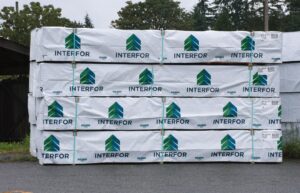 EAR FALLS, Ontario — Northerners know what it means to put in an honest day’s work. …But in Ear Falls, that northern way of life is under threat. In October, Interfor announced the indefinite closure of the Ear Falls sawmill. Over 160 jobs have vanished, and the community is left waiting—hoping that leaders in Ottawa and Toronto will step up, restore these jobs, and fight for the future of Ear Falls. But Ear Falls did not just stand by, they united. Workers, families, municipal leaders, Unifor, and MPP Sol Mamakwa stood shoulder to shoulder to demand action. …But the response from Premier Ford and Prime Minster Carney? Deafening silence. The indefinite closure of Ear Falls’ sawmill, and the silence from Conservative and Liberal governments lay bare the legacy of under-development, under-investment, and under-representation that holds Northerners back.
EAR FALLS, Ontario — Northerners know what it means to put in an honest day’s work. …But in Ear Falls, that northern way of life is under threat. In October, Interfor announced the indefinite closure of the Ear Falls sawmill. Over 160 jobs have vanished, and the community is left waiting—hoping that leaders in Ottawa and Toronto will step up, restore these jobs, and fight for the future of Ear Falls. But Ear Falls did not just stand by, they united. Workers, families, municipal leaders, Unifor, and MPP Sol Mamakwa stood shoulder to shoulder to demand action. …But the response from Premier Ford and Prime Minster Carney? Deafening silence. The indefinite closure of Ear Falls’ sawmill, and the silence from Conservative and Liberal governments lay bare the legacy of under-development, under-investment, and under-representation that holds Northerners back.
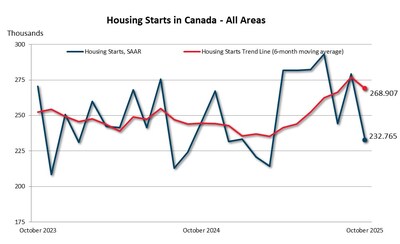
 The US Census Bureau announced the following value put in place construction statistics. …Construction spending during August 2025 was estimated at a seasonally adjusted annual rate of $2,169.5 billion, 0.2 percent (±0.7 percent) above the revised July estimate of $2,165.0 billion. The August figure is 1.6 percent (±1.5 percent) below the August 2024 estimate of $2,205.3 billion. During the first eight months of this year, construction spending amounted to $1,438.0 billion, 1.8 percent (±1.0 percent) below the $1,463.7 billion for the same period in 2024. …Spending on private construction was at a seasonally adjusted annual rate of $1,652.1 billion, 0.3 percent (±0.5 percent) above the revised July estimate of $1,647.5 billion. …In August, the estimated seasonally adjusted annual rate of public construction spending was $517.3 billion, virtually unchanged from (±1.2 percent) the revised July estimate of $517.5 billion.
The US Census Bureau announced the following value put in place construction statistics. …Construction spending during August 2025 was estimated at a seasonally adjusted annual rate of $2,169.5 billion, 0.2 percent (±0.7 percent) above the revised July estimate of $2,165.0 billion. The August figure is 1.6 percent (±1.5 percent) below the August 2024 estimate of $2,205.3 billion. During the first eight months of this year, construction spending amounted to $1,438.0 billion, 1.8 percent (±1.0 percent) below the $1,463.7 billion for the same period in 2024. …Spending on private construction was at a seasonally adjusted annual rate of $1,652.1 billion, 0.3 percent (±0.5 percent) above the revised July estimate of $1,647.5 billion. …In August, the estimated seasonally adjusted annual rate of public construction spending was $517.3 billion, virtually unchanged from (±1.2 percent) the revised July estimate of $517.5 billion. 







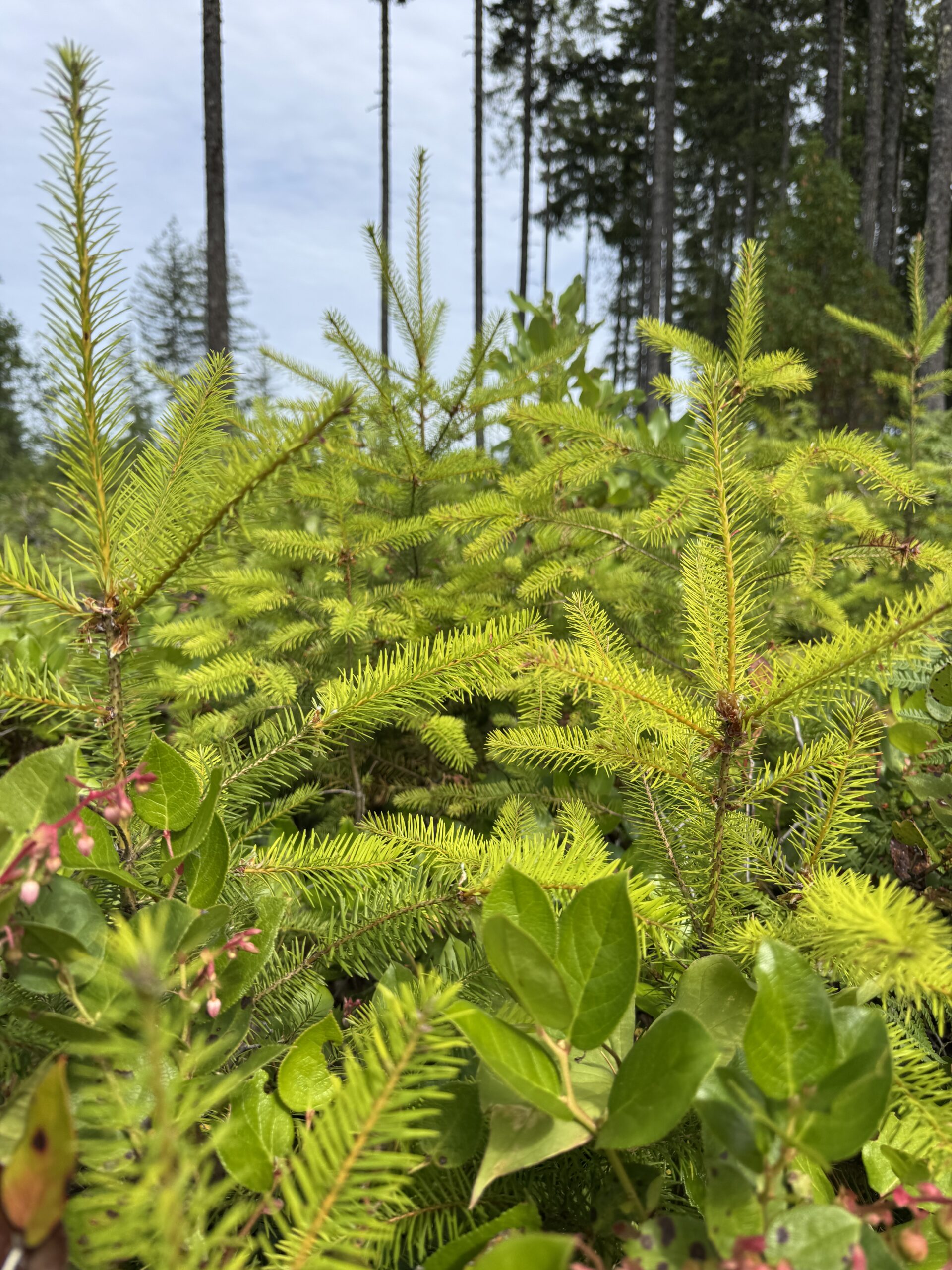 The best time to plant a tree is 10 years ago. Or 20. That’s what I was told by the two retired foresters who put 2,000 one-year-old seedlings in the ground on my farm back in 2017. I had signed on with what was then called the 50 Million Tree program run by Forests Ontario, which subsidized plantings for private landowners. …the Forests Ontario program made tree planting easy. At 40 cents a stem, those trees cost me $800. While 2,000 trees seems like a lot, they cover just under one hectare. We got the seedlings in the ground a couple years before Doug Ford nixed the initiative in 2019. But then, Justin Trudeau created the
The best time to plant a tree is 10 years ago. Or 20. That’s what I was told by the two retired foresters who put 2,000 one-year-old seedlings in the ground on my farm back in 2017. I had signed on with what was then called the 50 Million Tree program run by Forests Ontario, which subsidized plantings for private landowners. …the Forests Ontario program made tree planting easy. At 40 cents a stem, those trees cost me $800. While 2,000 trees seems like a lot, they cover just under one hectare. We got the seedlings in the ground a couple years before Doug Ford nixed the initiative in 2019. But then, Justin Trudeau created the 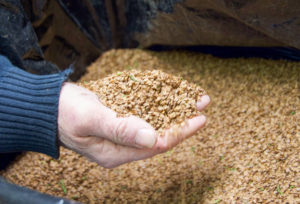 BANFF, Alberta – Because of this importance of whitebark pine, Parks Canada is working across the mountain national parks of Banff, Yoho, Kootenay, Jasper, Revelstoke-Glacier and Waterton Lakes to try to give endangered whitebark pine a fighting chance. The higher elevation trees, which can live to be 1,000 years old, are dying off at an alarming rate. Climate change, more than a century of wildfire suppression and mountain pine beetle are all playing a role, but the biggest threat comes from white pine blister rust. …One clear sign of infection is orange blisters on the bark. McLellan said less than one per cent of whitebark pine are naturally resistant to the rust. …Charlie McLellan said last summer about 6,500 rust-resistant saplings were planted in the Banff National Park field unit and in Kootenay National Park – made up of whitebark pine and limber pine, another species recommended to be listed as endangered.
BANFF, Alberta – Because of this importance of whitebark pine, Parks Canada is working across the mountain national parks of Banff, Yoho, Kootenay, Jasper, Revelstoke-Glacier and Waterton Lakes to try to give endangered whitebark pine a fighting chance. The higher elevation trees, which can live to be 1,000 years old, are dying off at an alarming rate. Climate change, more than a century of wildfire suppression and mountain pine beetle are all playing a role, but the biggest threat comes from white pine blister rust. …One clear sign of infection is orange blisters on the bark. McLellan said less than one per cent of whitebark pine are naturally resistant to the rust. …Charlie McLellan said last summer about 6,500 rust-resistant saplings were planted in the Banff National Park field unit and in Kootenay National Park – made up of whitebark pine and limber pine, another species recommended to be listed as endangered.